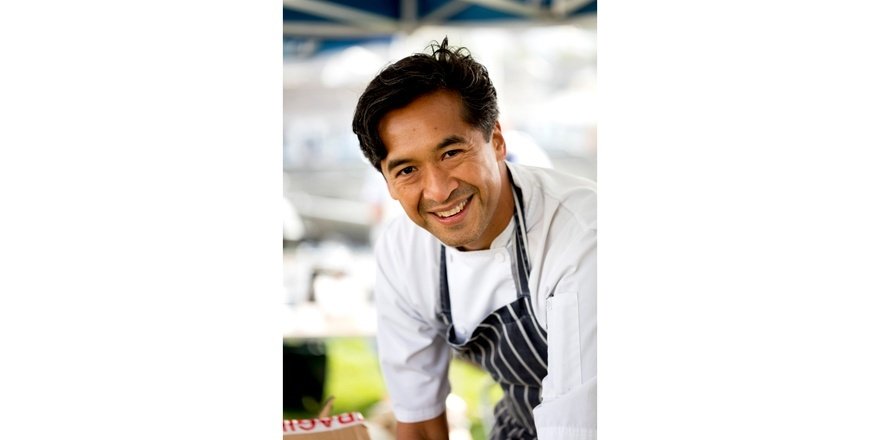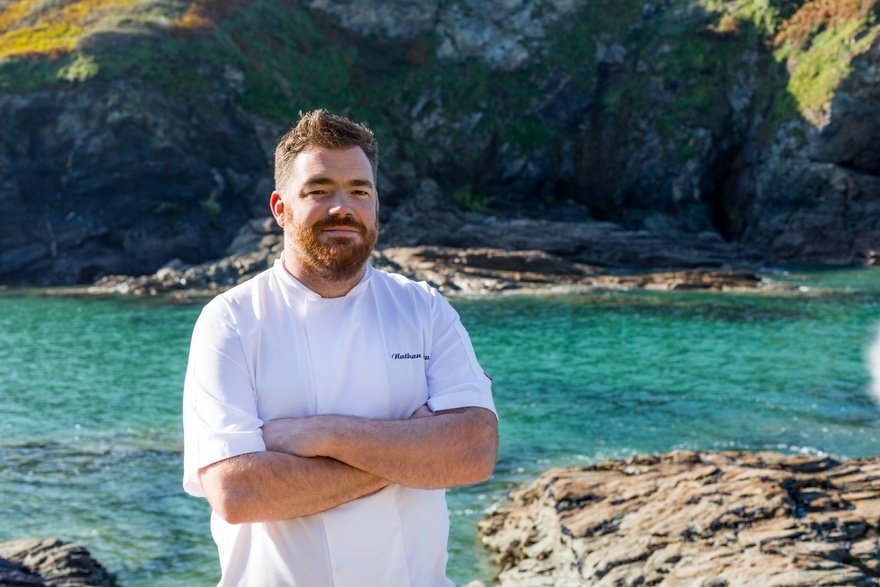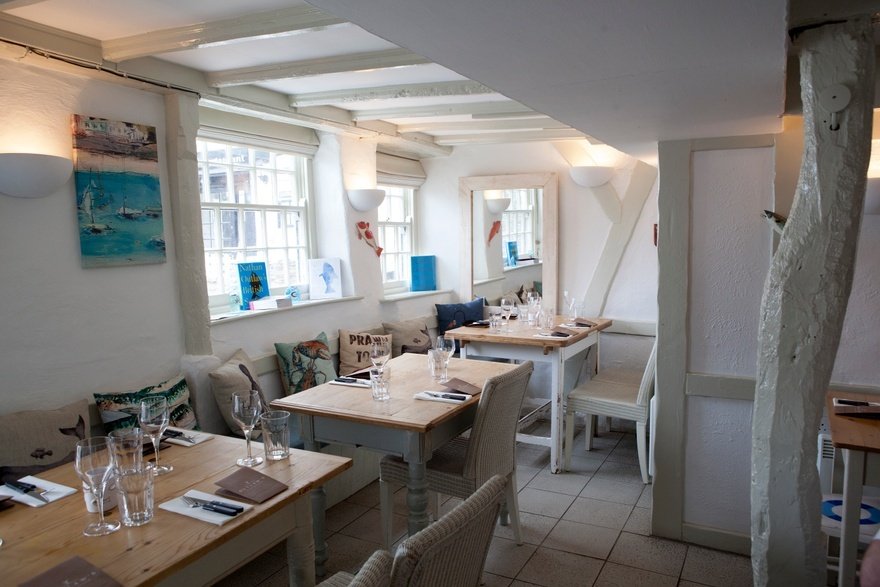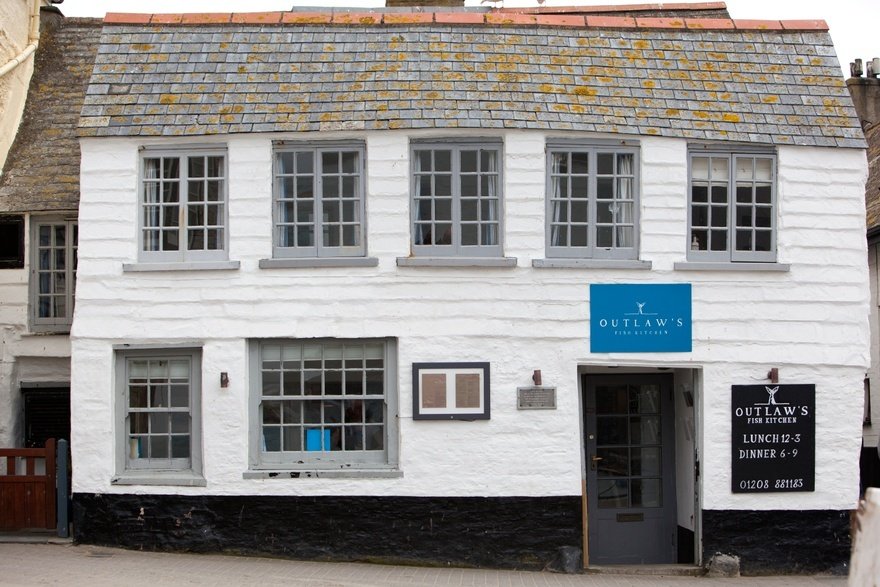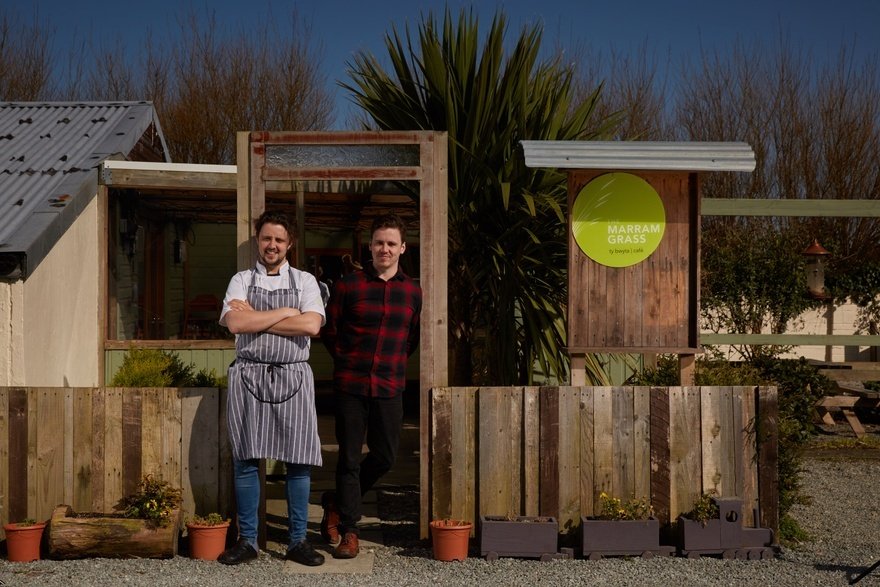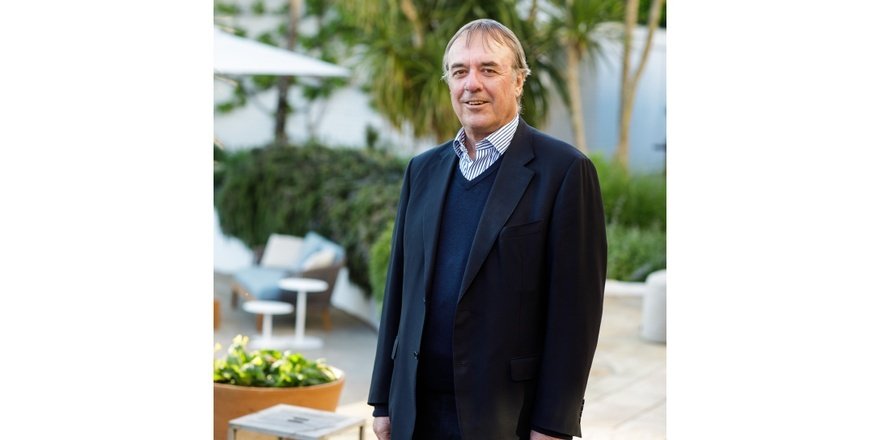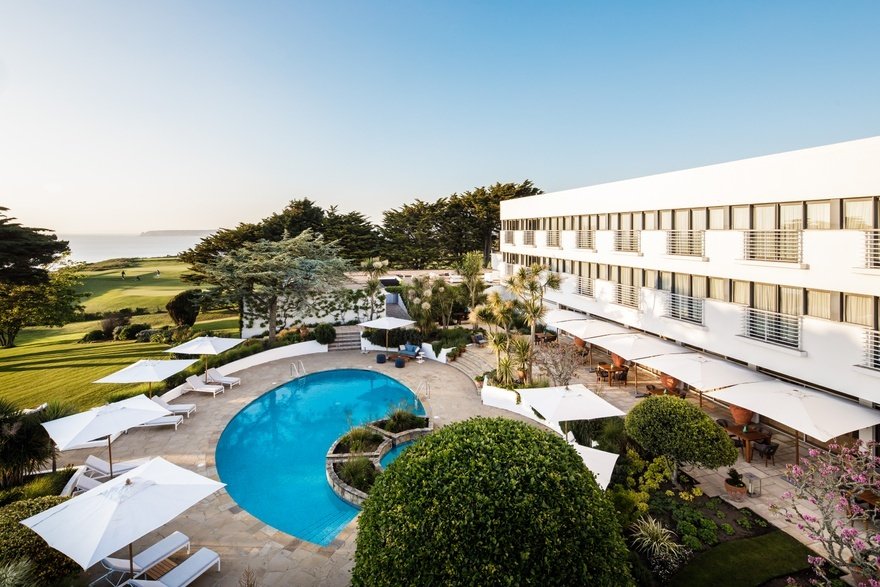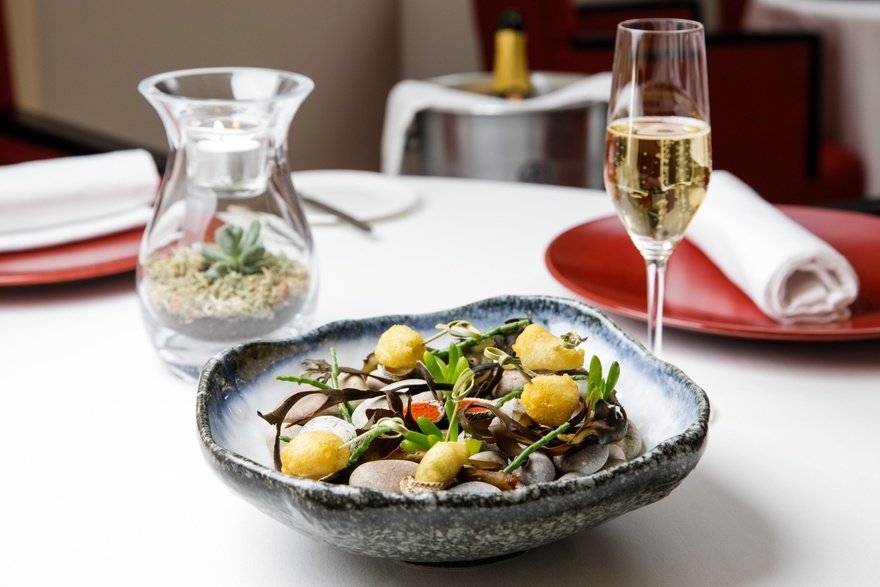As most operators look forward to reopening, businesses in rural and coastal hotspots are worried they'll be left out in the cold with no summer in which to subsidise a winter of low profits. Emma Lake reports
As the sun beat down in May and early June, many will have wished they were by the seaside. But for hospitality businesses in tourist hotspots, their proximity to seasonal attractions such as beautiful coastlines will make the coming year even harder.
After the lean winter months, operators in coastal towns and areas of natural beauty awaited the moment when tourists descend and set up camp for the summer months, bringing loaded wallets with them. But this year, those would-be tourists remained under lockdown in their homes, and operators have been left wondering how they will be able to make it through another winter.
Jude Kereama, chef-patron of Kota and Kota Koi in Porthleven, Cornwall, says: "We've missed a lot of the season already. From the point of view of our business, the two weeks of Easter are the busiest weeks of the whole year.
"The impact this is going to have on Cornish businesses is going to be enormous. We're still crystal ball-gazing at the moment because we're not sure when we'll be allowed to open inside space in any capacity.
"We have to take into consideration the seasonality of Cornwall and Devon. They're very different demographically, because we don't have the population that will get us through that winter period."
Nathan Outlaw, chef-patron of the two-Michelin-starred Restaurant Nathan Outlaw and one-Michelin-starred Outlaw's Fish Kitchen, both in Cornwall's Port Isaac, agrees: "Our biggest issue is not now, or this summer – it's going to be the winter.
"Hopefully we're going to get 10 weeks of summer activity and at the moment we're concentrating on trying to get some revenue through the door from those visitors as well as the local people. But we know what comes after is quiet in normal circumstances, so god knows what it's going to be like with the virus."
Local authorities have been analysing the impact in Cornwall, where it is not just individual businesses facing a fight for their livelihoods, but much of the community, with 50% of people employed in hospitality and tourism.
A report presented at a meeting of Cornwall council last week anticipated that the lockdown would cost the region's tourism sector £630m by the end of June, with more than 29,000 job losses anticipated in the accommodation and foodservice sectors alone.
Both Outlaw and Kereama are adapting to maximise the short season they hope to have, if the government gives the green light for reopening on 4 July. The former has already launched an Outlaw's To Go offering and anticipates this being the core model for the operation while social distancing is in place, due to the size restrictions of his restaurants.
He explains: "Restaurant Nathan Outlaw was doing really well financially and in terms of reputation, but that's completely on the back burner – I'm not even thinking about it. I've got to use my experience in other areas and make it work a different way.
"It takes quite a lot for anyone to adjust to do mass catering. We've always been used to doing the covers for the size of the restaurants, with an average spend that would cover our wages and the mortgage. We were a restaurant getting an average spend of £150-£160 a head and now we're going into a market where you'll be lucky to get £20 a head. It's a complete change. We've got to be really clever as we go to get some of that market."
Kereama is planning to use the outside space at Kota Koi from 4 July, although he anticipates difficulties, warning "at times we can have four seasons in one day in Cornwall." He will also expand to offer takeaway or cook at home options and would like to see his new third venue, Kota Kuki, open in a complex of 47 luxury apartments called the Valley in Carnon Downs. The site had been due to open its doors in April and Kereama believes he can use the outdoor space for alfresco dining, as well as offering meal packs and takeaways to locals as well as those staying on-site.
But while plans are being drawn up, neither chef is under the illusion that the area will welcome the 2021 season without support. Kereama says: "Tourism is 70% of our takings here in Cornwall. It doesn't just affect the restaurants; there's the hotels, the B&Bs, our producers, the fishermen – they all rely on tourism.
"If demand can extend the season that will be great, but a lot of us are accumulating bills here and we're going to need some help. There's going to be a lot of people who will not open and the ones who do survive will struggle, because we've lost so much of the season. I'd love to see some relief; I'd love to see a drop in VAT."
There's going to be a lot of people who will not open and the ones who do survive will struggle, because we've lost so much of the season
Outlaw adds: "First and foremost we need to get businesses through this winter or there won't be anything to promote in 2021. The biggest issue is next year won't come for a lot of hospitality businesses in seasonal areas, unless they're supported through this winter."
Next year won't come for a lot of hospitality businesses in seasonal areas, unless they're supported through this winter
End of the season
It's a similar story in Anglesey, where Liam and Ellis Barrie have built up the award- winning Marram Grass restaurant within the caravan park their parents bought in 2009.
Liam says: "It's a nightmare, really. Come September or October in Anglesey the numbers traditionally switch of. There might be a bit of an extension, with people wanting to get weekend breaks in if they haven't been able to get away, but it's a really daunting proposition for the tourism and hospitality industry. We've got just August and September to make enough money to get us through to next April. It's really difficult to envisage how we're going to do that."
The brothers had hoped to open the doors of their second restaurant, Lerpwl in Liverpool's Royal Albert Dock, but the pandemic has delayed the launch, as well posing the question of how either site will work with social distancing in place. The hope had been that the restaurants would support one another, with Lerpwl able to prosper through Anglesey's off season, but all calculations for 2020 must now be trashed. However, the Barries have not been idle in lockdown and diversification has continued with a renewed focus on their Fat Pig farm in Wales, which has expanded its product ranges and delivery.
Liam adds: "We've been developing dishes and menus in and around the Fat Pig concept. Whether we use them or put them on the shelf for a rainy day we haven't decided yet, but it's stopped us feeling hopeless as much as anything – it gives us other options for how we attack this next six to eight weeks.
"The Marram Grass will struggle this season and we may have to have a smaller operation and let the Fat Pig spill out of just being the farm. We could bring in pork products for people to try and move it into a casual dining space."
Liam stresses once again the pressure on August and September to not only pay the bills, but to also allow the business to keep developing its teams' careers.
He adds: "Anything will help at this stage. Ideally, the tax payments that had been deferred until the end of March could be wiped, because there's no money to pay off the deferred VAT. We'll be paying that out of this year's profits as well as a putting in a mark-up for VAT on anything we're able to do this year."
Underfunded overheads
Patrick Burke, owner and managing director of the Atlantic hotel on Jersey, agrees. "The government here has helped us by deferring social security payments, but my concern would be that if we can't pay now, how are we going to be able to pay in a year's time?
"I think we'd be asking for that to be looked at with a view for them to be written off. We would also very likely be asking for some sort of financial assistance over and above payroll co-funding [Jersey's furlough scheme] to get through the winter. That scheme is essentially there to maintain staff, but it doesn't for a moment speak to the fact that every week and every month we owe more money than we did the week or month before because we have overheads that we just can't get the revenue in to cover."
Burke is under no illusions as to how serious the situation is and has said communication from officials is vital, with guidance on when the island's airport can reopen to bring guests in urgently needed.
He explains: "This crisis came at the worst possible time because we were just coming out of winter and six months of losing money. We'd spent money improving the hotel and taking on staff for the season and then we had to close just at the time when we'd normally have some positive cash flow to see us through the next winter. We're effectively facing a doomsday scenario, which is three consecutive winters, which is going to do untold damage here on the island and I'm sure on the mainland, too.
We're effectively facing a doomsday scenario, which is three consecutive winters, which is going to do untold damage here on the island
"The biggest problem is uncertainty. The government can't tell us anything that's around the corner and it's incredibly unsettling and has a knock-on effect through our whole community. We have more than 100 local businesses that supply the hotel and I'm proud to say we've been paying our bills through this period, but it's difficult."
The Atlantic has offered takeaways from the hotel throughout the lockdown and is now open for the island's residents to enjoy a meal on the outdoor terrace or in the Ocean restaurant, which is headed by executive chef Will Holland. However, the flow of visitors is dependent on airlines being able to resume flights and Burke does not believe numbers will return quickly to previous levels.
He adds: "We all recognise it's important for everyone to be safe, and we understand the government has a lot of factors to weigh up, but the point we're getting to here is where we're going to have to say ‘look, either you open things or we're going to need some very significant help to avoid losing a very large number of hotels on this island'.
"The season runs from April to October; the good months are from May to September and nothing happens at all in the winter. We very quickly go into a negative position from a cash flow point of view, so we're fast running out of time."
Burke, who sits on the Visit Jersey board and the island's Visitor Economy Recovery Task Force, said it is vital that officials take a long-term view when looking at the support they will provide to areas reliant on tourism and hospitality.
He adds: "This is not a short-term industry and we have to recognise that, one way or another, we will come out of this crisis. It may not be until next year, and we may suffer for years to come, but if the island is going to maintain a strong industry for the future, it's going to need to be looking at the long-term regeneration of the industry.
"We need to take a 10-year view – look at 2030 and say, ‘If we're going to have a great industry, what is it going to need?' That means investment and these hoteliers who are literally fighting for survival are not going to be able to fund that.
"We have to look for long-term financing, whether by grant, loan or some sort of equity investment, because I do believe we're going to come out of this having learned a great deal. We can be stronger than ever, having taken the opportunity to really think through a vision for the longer term."
Will staycations save the industry?
With travel restrictions remaining in place, many operators are hoping staycations will be the saviour of the latter part of the summer season.
Data from Expedia has shown that 90% of visits to its website between March and May were from domestic consumers looking to travel in the UK. More than a quarter of searches carried out were for ‘unknown dates', suggesting there is pent-up demand for when restrictions are lifted.
However, it seems unlikely that even the latter part of the season will see a return to normality for tourist hotspots, with data showing travellers looking to lower-density areas.
A list of Expedia's most-searched-for destinations was topped by Edinburgh, followed by the Lake District and Cumbria, Liverpool, Devon and Manchester.
UK market management director Helen Maher said: "What's interesting from the search data is that the pandemic is putting less-travelled destinations back on the map. Hoteliers in these counties/cities now have a real chance to capture such demand during the summer holiday season.
"Understandably, domestic customers will be more cautious in making their travel plans during this time. We can expect more bookings to be made via mobile and last-minute bookings with a longer length of stay are likely in the remainder of 2020, given that many locals won't plan overseas trips this year due to the psychological impact of Covid-19."
Continue reading
You need to be a premium member to view this. Subscribe from just 99p per week.
Already subscribed? Log In


